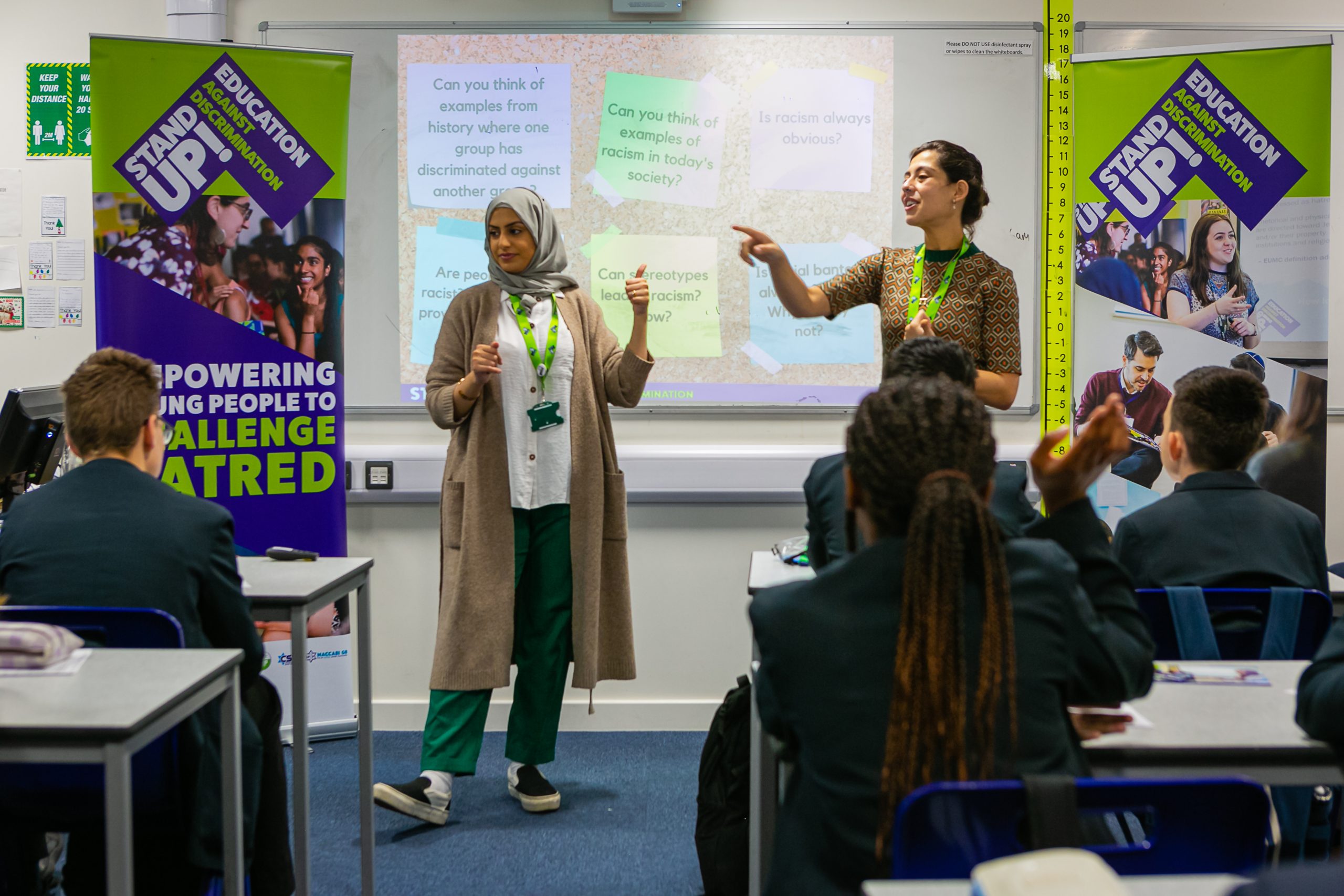This blog post was published under the 2022 to 2024 Conservative government
By Zaynab Albadry, Stand Up! Education Against Discrimination
Extremists and groups who aim to stir hatred are becoming much more sophisticated in how they appeal to young people and the wider community. It is therefore vital that teachers are aware of platforms they operate on and the symbolism they use, and encourage a counter narrative in schools by creating a safe and respectful environment where young people feel confident expressing themselves. On Hate Crime Awareness Week (8-16 October) schools can use this opportunity to educate pupils on hate crime and empower them to stand up for different communities.
Stand Up! Education Against Discrimination is an interfaith, educational project led by Maccabi GB and CST and has reached over 60,500 young people in 120 schools across the country since its inception in 2017. The project empowers young people to learn about and act against racism, discrimination, antisemitism and anti-Muslim hate. Our free interactive workshops aim to educate young people about tolerance and responsibility, by framing the conversation around the Equality Act (2010) and British Values.
The majority of the young people who take part in Stand Up! workshops state that they have seen or witnessed a hate crime or know someone who has been targeted because of their identity. With this in mind, it is important for young people to understand how they are protected by the law and to gain information on support services. Alongside this, students in our workshops are provided with tools on how to safely react if they witness or experience a hate crime. The programme also offers training for teachers on how to address racist, antisemitic and Islamophobic content in the classroom, to better equip them with tools on how to tackle these issues.
If you’re planning to discuss topics such as hate crime in the classroom, it is important to:
- Set ground rules for respectful conversation.
- Make sure that young people have the space and time to share their honest thoughts but do always challenge harmful rhetoric and prejudice.
- Use facts, statistics, and real-life incidents to counter misconceptions.
- Consider if there is an opportunity to hear from people in the community from different backgrounds.
Stand Up! workshops are delivered by dynamic facilitators from Jewish and Muslim backgrounds, who create a safe space for young people to break down misconceptions. Through debunking myths and challenging stereotypes about the communities, young people’s critical thinking skills are developed, which enables them to identify and counter discrimination safely and responsibly.
Next steps:
- Book a free workshop for students or teacher training sessions.
- Download No Love for Hate – an interactive teaching resources which can help you define what hate crime is, and challenge students’ misconceptions.

